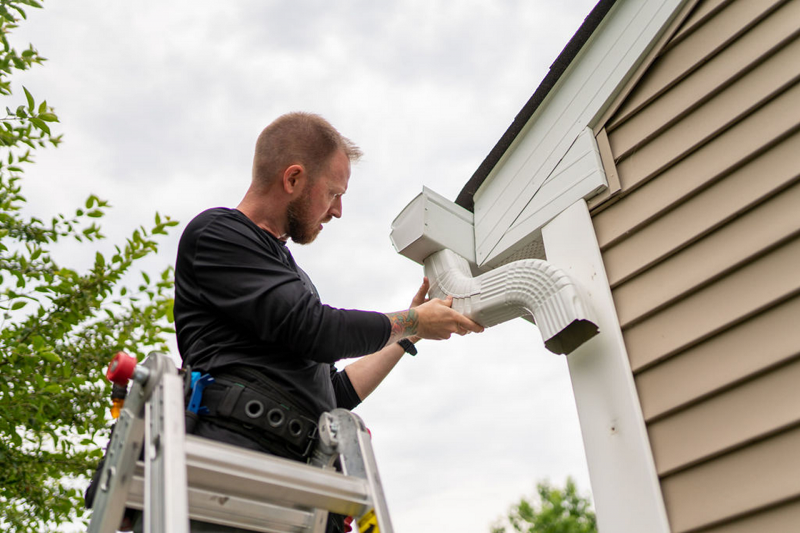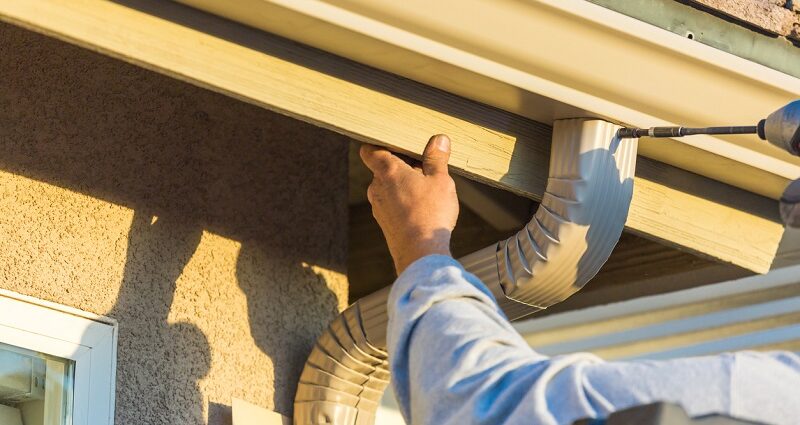Gutters are often an overlooked aspect of a home’s exterior, but they are crucial in protecting your property from water damage. Properly installed gutters can prevent erosion, basement flooding, and structural issues. If you’re considering installing gutters, several important factors should be considered before diving into the project.
1. Assess Your Home’s Needs
Before you start installing gutters, take a close look at your home’s structure and surroundings. Consider factors such as the roof size, pitch, and the average rainfall in your area. These factors will determine the type and size of gutters you need.
2. Choose the Right Material
Gutters come in various materials, including aluminum, steel, vinyl, and copper. Each material has its advantages and disadvantages. Aluminum is lightweight and rust-resistant, making it a popular choice. Copper offers an elegant look but comes at a higher cost. Select the material that best suits your budget and aesthetic preferences.
3. Determine the Gutter Style
Gutters come in different styles, such as K-style and half-round. K-style gutters are more common and can handle heavy rainfall efficiently. Half-round gutters have a classic appearance and work well for historical or traditional homes. Choose a style that complements your home’s architecture.
4. Consider Gutter Guards
To minimize debris buildup and reduce maintenance, consider installing gutter guards. These protective covers prevent leaves, twigs, and other debris from clogging your gutters, ensuring they function optimally.
5. Calculate Proper Slope
Gutters should have a slight slope to direct water toward the downspouts. To calculate the right slope, aim for a drop of ¼ inch for every ten feet of gutter. This ensures proper water flow and prevents standing water.
6. Plan Downspout Placement
Decide where to place the downspouts strategically. Ensure they direct water away from your foundation and landscaping. Proper downspout placement prevents water from pooling near your home, which can lead to structural damage.
7. DIY vs. Professional Installation
While some homeowners choose to install gutters themselves, it’s often a complex task that requires precise measurements and skills. Hiring a professional ensures the job is done correctly and efficiently, reducing the risk of leaks or other issues.
8. Obtain Necessary Permits
Check with your local authorities to determine if you need permits for gutter installation. Regulations vary by location, and compliance with local building codes is essential to avoid legal complications.
9. Regular Maintenance
Gutters require ongoing maintenance to function correctly. Schedule regular cleanings to remove debris and inspect for any damage. Neglecting maintenance can lead to costly repairs down the road.
10. Proper Sizing and Placement of Downspouts
Ensure that the downspouts are appropriately sized and placed to handle the volume of water your roof collects. Inadequate downspouts can lead to overflowing gutters and water damage.
11. Consider Rain Chains
Rain chains are decorative alternatives to downspouts. They add a unique touch to your gutter system and allow you to direct water aesthetically pleasingly.
12. Budget Wisely
Create a budget for your gutter installation project, considering material costs, labor, and any additional features like gutter guards. Having a clear budget will help you avoid overspending.
13. Understand Warranty and Maintenance
Each gutter material may come with different warranty terms. Understand your chosen gutters’ warranty and maintenance requirements to ensure their longevity.
14. Protect Your Landscaping
During gutter installation, take precautions to protect your landscaping. Heavy equipment and materials can damage plants and grass, so plan accordingly.
15. Educate Yourself
Lastly, educate yourself about the gutter installation process. Understanding the steps involved will help you communicate effectively with contractors and make informed decisions.
In conclusion, installing gutters is a significant investment in protecting your home from water damage. By considering these essential factors and making informed choices, you can ensure that your gutter installation project succeeds.
Frequently Asked Questions (FAQs)
- How much does gutter installation cost?
- The cost of gutter installation varies based on factors such as material, style, and labor. It’s best to get quotes from local contractors for accurate pricing.
- How often should I clean my gutters?
- Generally, gutters should be cleaned at least twice a year, in the spring and fall. However, the frequency may vary depending on your location and surrounding trees.
- Can I install gutters myself?
- While it’s possible to install gutters yourself, it’s a complex task. Hiring a professional ensures a proper and efficient installation.
- What is the lifespan of gutters?
- The lifespan of gutters depends on the material used and maintenance. Aluminum gutters can last 20-30 years, while copper gutters can last over 50 years with proper care.
- Do gutter guards really work?
- Yes, gutter guards are effective in preventing debris buildup. They reduce the need for frequent gutter cleaning and help maintain optimal water flow.










